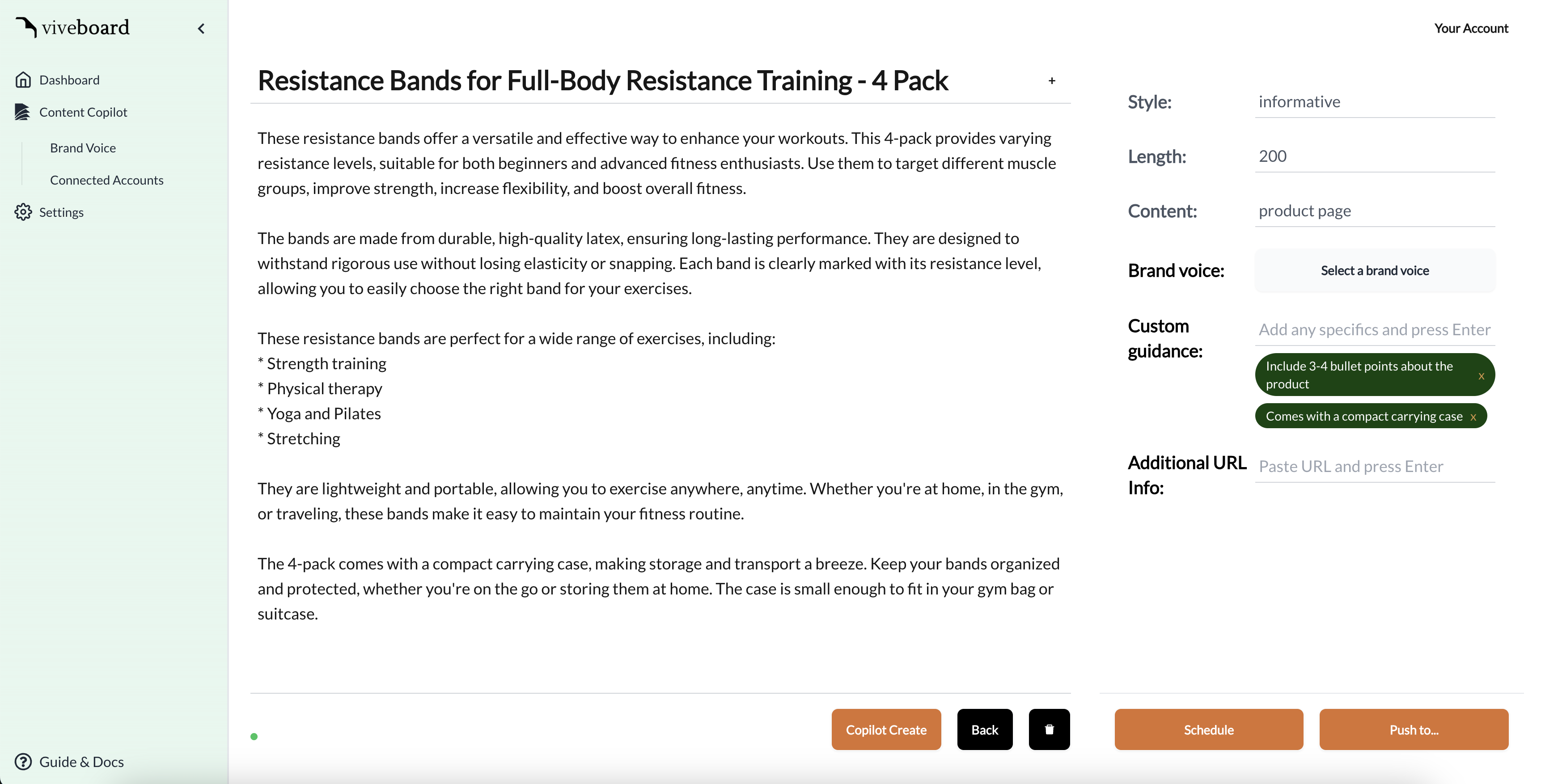Enhancing Your E-commerce Store: The Power of AI Writing Assistants
March 13, 2025
Running an online store requires wearing many hats - you're a marketer, customer service representative, inventory manager, and content creator all at once. With so many responsibilities, creating compelling product descriptions, engaging blog posts, and effective email campaigns can become overwhelming. This is where AI writing assistants are transforming the e-commerce landscape, empowering store owners to produce high-quality content efficiently and effectively.
Keeping Up With Everything - Including Content Creation
The content challenge for e-commerce businesses is significant. You need product descriptions that convert, category pages that inform, and blog content that builds authority - all while maintaining a consistent brand voice. Traditional approaches often meant choosing between quality and quantity, or investing heavily in freelance writers who might not fully understand your products or vision.
AI writing assistants have emerged as powerful solutions to these challenges. These tools leverage advanced language models to generate human-like text based on your inputs and requirements. They can help create everything from product descriptions to blog posts, email newsletters, and social media content - all crucial elements for a successful online store.
One of the most significant advantages of using AI writing assistants for e-commerce is the time savings. What might take hours to write manually can be generated in minutes, allowing you to focus on other aspects of your business that require your personal attention. This efficiency doesn't just save time - it enables you to scale your content creation efforts without proportionally increasing your workload.
Keeping Consistent with E-commerce Content Creation is Key
Consistency is another key benefit of using these sorts of tools. AI tools can maintain your brand voice across all content, ensuring that whether a customer is reading a product description, blog post, or email, they experience the same tone and style. This consistency helps build brand recognition and trust with your audience.
Not all AI writing assistants are created equal, though. While many e-commerce owners might default to using ChatGPT directly, specialized tools like Content Copilot offer distinct advantages. Content Copilot connects to multiple AI assistants simultaneously, giving you several content options to choose from rather than being limited to a single output. This multi-engine approach increases the likelihood of getting content that truly resonates with your vision without extensive editing.
Writing Engaging Product Descriptions and Category Pages to Increase Conversions
For product descriptions, AI writing assistants can transform basic specifications into compelling narratives that highlight benefits and create emotional connections with potential buyers. Instead of listing features, these tools can craft stories about how products solve problems or improve lives - a proven approach to increasing conversion rates.Category pages often get overlooked in content strategies, but they're crucial for both SEO and user experience. AI writing assistants can generate informative category descriptions that incorporate relevant keywords while providing valuable context for shoppers. This helps improve your store's visibility in search results while guiding customers through your product catalog.
By inputting just a couple of things, along with custom content if necessary, you can generate a product page description in seconds.
Where Do Regular Blog Posts Fit Into Your E-Commerce Strategy?
Blog content is where many e-commerce stores struggle to maintain consistency. Regular publishing builds authority and drives organic traffic, but creating thoughtful, valuable posts takes time. AI writing tools can generate blog outlines, draft full articles, or help expand your ideas into comprehensive content. With Content Copilot, you can even provide URLs of existing content as context, ensuring your AI-generated blog posts align with previous articles or competitor content you admire.
Email marketing remains one of the highest-ROI channels for e-commerce, and AI writing assistants excel at creating engaging subject lines, promotional copy, and personalized content. By inputting basic campaign parameters and goals, you can quickly generate email content that drives opens, clicks, and ultimately, sales.
Adding an AI Tool Into Your Workflow
When implementing AI writing assistants in your e-commerce strategy, consider these best practices:
First, provide clear guidance. The more specific your instructions, the better the output. Include details about your target audience, desired tone, key points to cover, and any specific phrases or calls to action you want to include.
Second, use AI as a starting point, not the final product. Even the best AI-generated content benefits from human review and refinement. Add your personal insights, check for accuracy, and ensure the content truly reflects your brand.Third, experiment with different approaches. Tools like Content Copilot that offer multiple options allow you to compare different styles and perspectives. What works for product descriptions might differ from what works for blog content.
Finally, learn from performance data. Track how AI-generated content performs compared to manually created content. This information can help you refine your approach and instructions over time.
The future of e-commerce content creation lies in this balanced partnership between human creativity and AI efficiency. By leveraging tools like Content Copilot that allow you to specify content type, desired length, and style while providing multiple options to choose from, you can produce more content without sacrificing quality or authenticity.As AI technology continues to evolve, e-commerce businesses that embrace these tools will gain a significant competitive advantage. The stores that thrive will be those that use AI to handle the heavy lifting of content creation while focusing their human resources on strategy, creativity, and customer relationships.